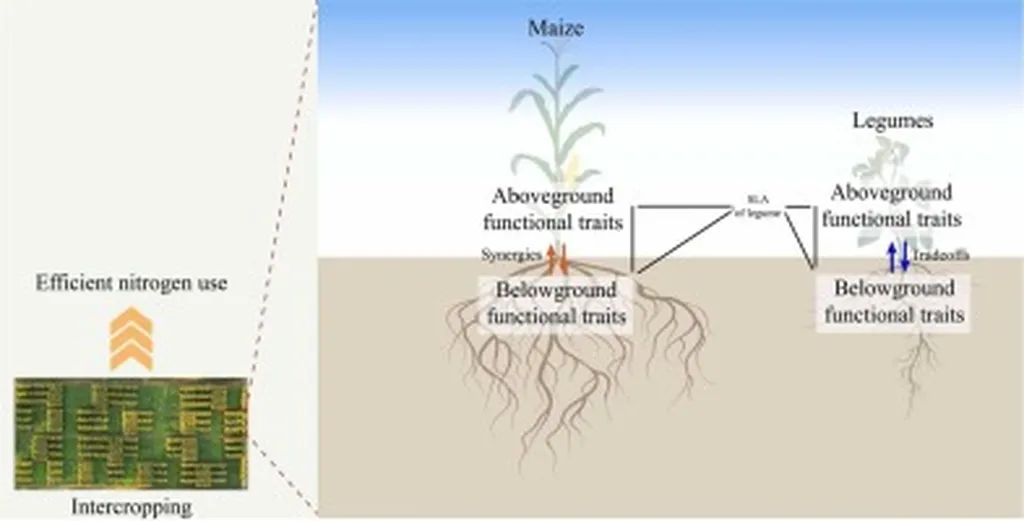In the heart of China’s Yunnan province, researchers are unlocking the secrets to more sustainable and productive agricultural systems. Yan Qiu, a leading expert from the College of Resources and Environment at Yunnan Agricultural University, has published groundbreaking research in the journal *Agronomy* (translated from Chinese as “Field Cultivation and Soil Science”) that could revolutionize how we think about water and nitrogen management in intercropping systems.
Intercropping, a practice where two or more crops are grown together in the same field, has long been recognized for its potential to improve yield stability, nutrient use efficiency, and soil health. However, the key to unlocking its full potential lies in the intricate dance between water and nitrogen management. “Synchronizing water and nitrogen inputs to match crop demands is crucial,” Qiu explains. “This optimization alleviates interspecific competition and promotes mutualistic interactions, significantly impacting crop growth, yield, and the soil environment.”
The research delves into the mechanisms of intercropping and water–nitrogen coupling regulation, exploring how aligning water and nitrogen supply with crop growth patterns can enhance photosynthetic efficiency, promote root development, and optimize nutrient uptake. This, in turn, improves soil water dynamics, nitrogen cycling, and microbial community structures. The findings suggest that intercropping can enhance the climate resilience of agricultural systems by leveraging species complementarity for resource utilization, strengthening ecosystem stability, and improving buffering capacity against climate change impacts.
The commercial implications for the energy sector are profound. As the world grapples with the challenges of climate change, the need for sustainable and resilient agricultural practices has never been greater. By adopting the principles outlined in Qiu’s research, farmers can enhance their productivity while reducing their environmental footprint. This not only benefits the agricultural sector but also has ripple effects on the energy sector, as more sustainable farming practices can lead to reduced energy consumption and lower greenhouse gas emissions.
Qiu’s research also highlights the importance of spatial configuration parameters and irrigation management techniques in optimizing water–nitrogen coupling. This opens up new avenues for precision agriculture technologies, which can be used to develop more adaptive water–nitrogen coupling models. By integrating climate change predictions, these models can provide theoretical support and technical guarantees for sustainable agriculture.
As we look to the future, the research conducted by Yan Qiu and her team offers a glimpse into the potential of intercropping systems to transform agriculture. By focusing on multidimensional integrated administration strategies, we can develop more resilient and sustainable agricultural practices that benefit both farmers and the environment. The journey towards sustainable agriculture is complex and multifaceted, but with the insights provided by Qiu’s research, we are one step closer to achieving this goal.

